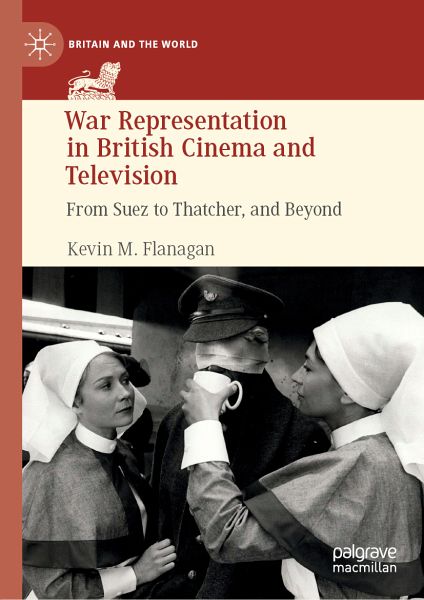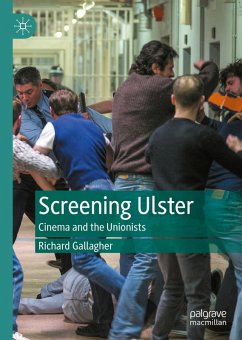
War Representation in British Cinema and Television (eBook, PDF)
From Suez to Thatcher, and Beyond
Versandkostenfrei!
Sofort per Download lieferbar
40,95 €
inkl. MwSt.
Weitere Ausgaben:

PAYBACK Punkte
20 °P sammeln!
This book explores alternatives to realist, triumphalist, and heroic representations of war in British film and television. Focusing on the period between the Suez Crisis of 1956 and the Falkland War but offering connections to the moment of Brexit, it argues that the "lost continent" of existential, satirical, simulated, and abstractly traumatic war stories is as central to understanding Britain's martial history as the mainstream inheritance. The book features case studies that stress the contribution of exiled or expatriate directors and outsider sensibilities, with particular emphasis on P...
This book explores alternatives to realist, triumphalist, and heroic representations of war in British film and television. Focusing on the period between the Suez Crisis of 1956 and the Falkland War but offering connections to the moment of Brexit, it argues that the "lost continent" of existential, satirical, simulated, and abstractly traumatic war stories is as central to understanding Britain's martial history as the mainstream inheritance. The book features case studies that stress the contribution of exiled or expatriate directors and outsider sensibilities, with particular emphasis on Peter Watkins, Joseph Losey, and Richard Lester. At the same time, it demonstrates concerns and stylistic emphases that continue to the present in television series and films by directors such as Lone Scherfig and Christopher Nolan. Encompassing everything from features to government information films, the book explores related trends in the British film industry, popular culture, and film criticism, while offering a sense of how these contexts contribute to historical memory.
Dieser Download kann aus rechtlichen Gründen nur mit Rechnungsadresse in A, B, BG, CY, CZ, D, DK, EW, E, FIN, F, GR, HR, H, IRL, I, LT, L, LR, M, NL, PL, P, R, S, SLO, SK ausgeliefert werden.












